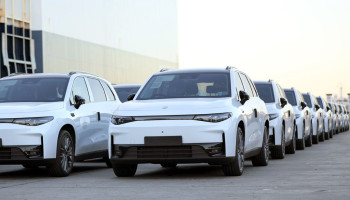Nepal Government has envisioned a significant shift towards electric vehicles (EVs) in Nepal, with a projection that 90 percent of private vehicle sales by 2030 will be EVs. This ambitious target is outlined in the National Implementation Plan for Climate Change Mitigation and Adaptation 2080-2087, aligning with global efforts such as the Convention on Climate Change, the Kyoto Convention, and the Paris Agreement, of which Nepal is a participant.
The action plan primarily focuses on achieving zero emissions in the transportation sector by transforming both public and private sector transport. Key initiatives include promoting and operating electric vehicles, implementing an electric bus rapid transit system, and expanding charging infrastructure, including fast-charging stations. By 2025, the goal is for electric vehicles to constitute 25 percent of private two-wheelers and four-wheelers sales.
During this period, an estimated 20 percent of total public vehicle sales are expected to be electric, excluding electric rickshaws and electric tempos. Looking ahead to 2030, it is projected that 90 percent of two-wheeler and four-wheeler private vehicle sales will be electric, while electric vehicles will make up 60 percent of four-wheeler public vehicle sales, excluding electric rickshaws and electric tempos.
Starting from the next financial year (2023/24), the government plans to allocate 25 percent of the pollution tax to the electric vehicle fund. This fund aims to support activities such as the conversion of vehicles to electric and the addition of electric vehicle components.
Additionally, the action plan outlines future measures, including reducing customs and excise duties on the import of electric vehicle parts, providing subsidies and subsidized loans to encourage electric vehicle purchases, and implementing standards equivalent to Euro6 for new vehicles. These comprehensive efforts are geared towards promoting sustainable and eco-friendly transportation in Nepal.

Bajaj Introduces Exchange Program throughout Nepal














